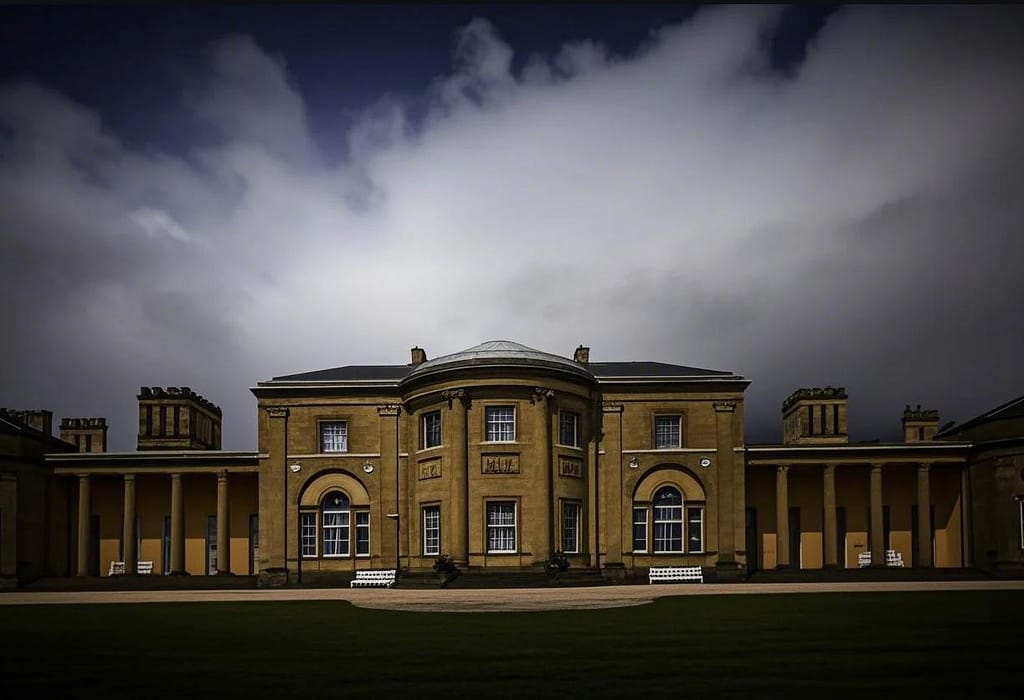Heaton Hall ghost stories drift through this Manchester manor in Heaton Park, M25 2SW, a Palladian masterpiece built in 1772 by Sir Thomas Egerton. A Grade I listed gem, its soaring columns and frescoed halls stunned Georgian elites, now a council-run museum. Near Salford, its grand past hums with tales of loss and longing.
Heaton Hall rose as Manchester’s mills roared, its lords basking in cotton wealth while workers toiled below. Designed by James Wyatt, it hosted lavish balls, yet heartbreak—wars, scandals—seeped into its stones. Those Heaton Hall ghost stories now draw seekers to its quiet rooms, where the air feels heavy with the past. From its domed rotunda to its wooded grounds, this manor holds spirits that linger.
One tale spins The Soldier’s March, a 1790s recruit killed in a drill, crushed by cannon. His boots tramp the Orangery, and a musket clanks—visitors smell powder’s burn. Another tells of The Mourning Lady, a 1820 Egerton bride who died in childbirth. Her cries echo in the Music Room, and a white figure rocks—harps play unstrung. These Heaton Hall ghost stories paint a haunting portrait, blending Manchester’s opulence with tragedy.
Heaton Hall’s marble stairs and secret passages fuel its spectral pull. The Cupola, once a star-gazing perch, now hums with unease—some see shadows cross its dome. Manchester’s Heaton Hall ghost stories thrill paranormal fans, linking grandeur to the uncanny. Its park, vast and green, hides corners where mists cling too long. Check deadlive.co.uk for more Northwest haunts—Heaton’s spirits don’t fade.

